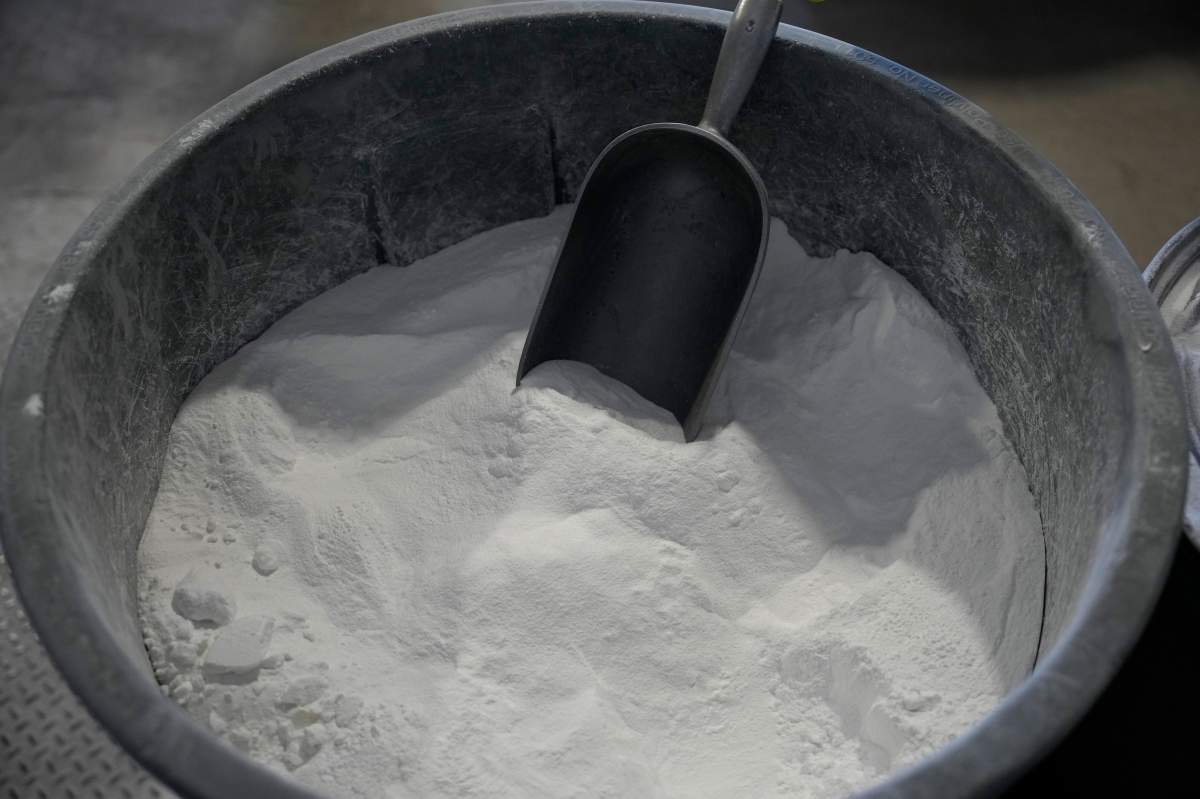As Canada is investing in gigafactories for electric vehicle batteries in Ontario, experts are warning that critical minerals essential to a clean economy are so far still largely in China’s control.

The federal government recently announced $13 billion in subsidies to win a Volkswagen EV factory in Ontario. In justifying the hefty price tag, Prime Minister Justin Trudeau told reporters in April that Canada wants to create reliable supply chains that we can count on as “autocracies around the world are using supply chains to their advantage.”
A key part of the supply chain for nearly everything in a green economy is the extraction and processing of critical minerals. The only problem is that in recent decades China has amassed a “quasi-monopoly” on raw materials and processing, according to Eric Miller, a fellow with the Canadian Global Affairs Institute who specializes in supply chains. That leaves the question of how Canada can transition its supply chain away from China — and what role we can play in the global shift.
“China has been focused on building up its critical minerals assets and control over the markets for the last 25 to 30 years,” Miller told Global News. “Reversing that trend is going to take a long time.”

'A real wake-up call'
Miller explained that China has acquired mining assets around the world, including in Africa, Latin America, and, for a while, Canada.
China has truly established dominance is in refining the raw materials, Miller said, which is necessary to turn the minerals into components that can be used in a wide range of technologies, from wind turbines to military gear such as night vision goggles.

Get breaking National news
The danger of China having control over these raw materials and refinement of them is that the country could use it as leverage in political situations, as it did with Japan in 2010. Back then, China cut off access to rare earth metals to Japan during a dispute over territory.
“It was a real wake-up call to a lot of people,” Miller said. “We know that China will use (supply chains) as a foreign policy tool.”
That possibility comes as China has suggested it could retaliate against Canada for expelling its diplomat Zhao Wei, who allegedly targeted Conservative MP Michael Chong and his family over his stance on China’s treatment of its Uyghur minority.
In response to the expulsion, China’s embassy in Toronto vowed to “take resolute countermeasures and all consequences arising therefrom shall be borne by the Canadian side.”

Moving away from relying on Chinese critical minerals, though, is not a quick process.
It can take up to 20 years for a new mine to come online, Miller said. And while Canada has dozens of the critical minerals that will power the green economy in its own soil, China has been buying critical minerals mines around the world and can sometimes be the only buyer a seller can turn to if looking to divest their holdings, according to Miller.
In 2022, the federal government limited sales of Canadian mining assets to Chinese companies and forced three Chinese companies to divest from Canadian critical minerals firms. It was a sweeping move to cut out involvement by foreign state-owned firms in that sector.
Can Canada 'run faster' on critical minerals?
In recent years, Canada and its allies have taken notice of the future challenges of Chinese dominance over critical minerals and are taking action, with vows to move supply chains to places that share similar values. Canada revealed a strategy for critical minerals at the end of 2022 and most recently signed a critical minerals deal with South Korea.
Miller said that Canada’s published strategy is an important start and at least acknowledges the problem, and that it was followed up by efforts in the 2023 federal budget to speed up Canada’s permit process for mining, which can currently take six to 10 years.
“They’re aware they need to run faster,” he said.
Ian London, the executive director of the Canadian Critical Minerals and Materials Alliance, thinks that Canada is trying to do too much and is spread too thin. He recommends the country focus more on one thing, such as refining.
“We should not be selling raw materials,” he said. “We should be providing both semi-processed and processed materials.”

He argues that processing and even creating small products necessary in supply chains, ourselves, would reduce the carbon footprint and ensure best practices are followed. There has been concern over the conditions of Chinese mines, with Trudeau commenting that Canadian lithium costs more because “we don’t use slave labour.”
In a free market, that extra cost could impact businesses, especially if China uses its market power to lower the price of its own goods. China will do everything in its power to make the West’s transition away from it difficult, Miller warned, including extreme price fluctuations that could complicate matters for publicly listed companies.
Already Canada’s only rare earth metal mining company, Vital Metals, paused all construction on a processing facility in Saskatchewan in April, saying that there is no economic incentive to complete it. Trudeau had visited the site three months earlier.
The market ultimately decides these business decisions, but the federal government is doing what it can to tip the scales by providing funding, such as with Volkswagen’s gigafactory in St. Thomas, Ont.
Though the transition to moving away from China may be difficult, Miller said that it should be a long-term commitment that spans different governments.
“The bottom line is we have no choice,” he said.
- Queen’s University students stranded in Doha after Iran attack shuts down airspace
- Iran begins search for new leader; U.S. military says 3 service members killed
- Khamenei’s death met with ‘jubilation’ among Iranian-Canadians: Liberal MP
- Attack on Iran triggers global flight disruptions, impacts Canadian travellers









Comments
Want to discuss? Please read our Commenting Policy first.